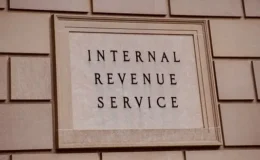Investing in rental properties can be an excellent way to build long-term wealth. They provide consistent monthly income and can appreciate in value over time. If you’re considering adding a rental property to your investment portfolio, understanding your financing options is critical. This blog post will guide you through the types of loans available for rental property investments, factors to consider when choosing a loan, and tips for assessing investor qualifications.
Rental properties are appealing because they offer a dual benefit—steady income and potential appreciation. But before you can start earning, you’ll need to finance your investment. With so many loan options available, it’s essential to choose the one that best fits your scenario. In this guide, we’ll break down the various loans suitable for rental properties, key considerations when selecting a loan, and what qualifications investors need to meet to secure financing.
Types of Loans Suitable for Rental Properties
Traditional Mortgages
Traditional mortgages include bank loans like 15 and 30-year mortgages and federal programs such as FHA loans. While investment properties may not qualify for some government programs, traditional loans are still a viable option for single-family and smaller multi-family properties. These mortgages typically offer competitive interest rates and high leverage ratios, meaning you can secure them with a smaller down payment.
- Interest Rates and Terms: Competitive interest rates make traditional mortgages attractive. They typically offer fixed or adjustable rates with terms ranging from 15 to 30 years.
- Leverage Ratios: High leverage ratios allow investors to make smaller down payments, freeing up capital for other investments.
- Suitability: Best for single-family homes and small multi-family properties.
Commercial Loans
Commercial loans are ideal for financing large multi-family homes and mixed-use properties that traditional mortgages don’t cover. These loans generally cap at 20-year amortization periods and come with higher interest rates. A minimum down payment of 20% is usually required due to the higher risk involved with larger properties.
- Interest Rates and Terms: Higher interest rates and shorter terms (up to 20 years) are common.
- Down Payment: Minimum of 20% down payment required.
- Suitability: Best for properties with five or more rental units or mixed-use properties.
Private Lending
Private loans are offered by companies specializing in real estate and can be a flexible option for various deal scenarios. Private lenders are often more lenient with loan terms and focus more on the property’s potential than the borrower’s credit score.
- Flexibility: Customizable loan terms tailored to specific deals.
- Credit Requirements: Less stringent on personal credit, focusing more on the property’s financial soundness.
- Suitability: Ideal for unique properties or situations where traditional financing isn’t feasible.
Factors to Consider When Choosing a Loan
Interest Rates and Loan Terms
Understanding the basics like interest rates, loan periods, and down payment requirements is crucial. However, you should also consider the finer details such as prepayment penalties and adjustable-rate options.
- Fixed vs. Adjustable Rates: Fixed rates offer stability, while adjustable rates might start lower but can increase over time.
- Loan Periods: Longer terms mean lower monthly payments but more interest paid over time.
Property Condition and Loan Type
Traditional lenders might hesitate to finance properties in poor condition, which they deem too risky. In such cases, private lending might be a better option due to their flexibility.
- Property Condition: Banks and credit unions may require properties to be in good condition.
- Loan Type: Choose a loan type that aligns with the property’s condition and your renovation plans.
Borrower Requirements
Different loans have varying requirements for credit scores and personal income. Traditional mortgages may require higher credit scores and verified income, while private lenders focus more on the property’s income potential.
- Credit Score: Higher scores increase your chances of securing favorable terms.
- Income Verification: Necessary for traditional loans but less so for private lending.
Assessing Investor Qualifications
Credit Requirements
For traditional mortgages, a good credit score is essential. Private lenders, however, place more weight on the property’s potential income and its Debt Service Coverage Ratio (DSCR).
- Traditional Loans: Typically require a minimum credit score for approval.
- Private Loans: Focus on the property’s DSCR, which measures the income potential against its debt.
Income Verification
Traditional and commercial loans often require proof of income to assess your ability to repay the loan. This is less stringent for private loans.
- Traditional and Commercial Loans: Require documented proof of income.
- Private Loans: More lenient, focusing on the property’s financial metrics.
Debt Service Coverage Ratio (DSCR)
Lenders use DSCR to evaluate the property’s income potential. A higher DSCR indicates a greater ability to cover debt obligations, making the loan less risky.
- Importance: A higher DSCR improves your chances of securing a loan.
- Calculation: DSCR = Net Operating Income / Total Debt Service.
How We Can Help
Choosing the right loan for your rental property investment is crucial for long-term success. Understanding your financing options—traditional mortgages, commercial loans, and private lending—allows you to make informed decisions. Consider factors like interest rates, loan terms, property condition, and borrower requirements to find the loan that best fits your scenario.
By doing your due diligence and comparing offers, you can secure financing that aligns with your investment goals. Remember, a quality lender will have a proven track record and be transparent about their loan programs. Take the time to research and choose wisely, ensuring your rental property investment is both successful and profitable.
Ready to take the next step? Explore your financing options and start building your real estate portfolio today!





